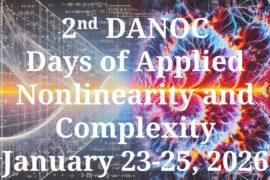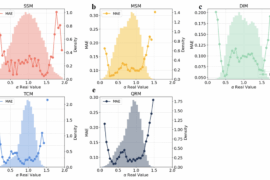Extended connectivity in graphs can be analyzed through k-path Laplacian matrices, which permit the capture of long-range interactions in various real-world networked systems such as social, transportation, and multi-agent networks. In this work, we present several alternative methods based on machine learning methods (LSTM, xLSTM, Transformer, XGBoost, and ConvLSTM) to predict the final consensus value based on directed networks (Erdös–Renyi, Watts–Strogatz, and Barabási–Albert) and on the initial state. We highlight how different k-hop interactions affect the performance of the tested methods. This framework opens new avenues for analyzing multi-scale diffusion processes in large-scale, complex networks.
Y. Ahsini, B. Reverte, J.A. Conejero. AI-Driven Consensus: Modeling Multi-Agent Networks with Long-Range Interactions Through Path-Laplacian Matrices. Appl. Sci. 2025, 15, 5064. DOI:10.3390/app15095064





Comments are closed.